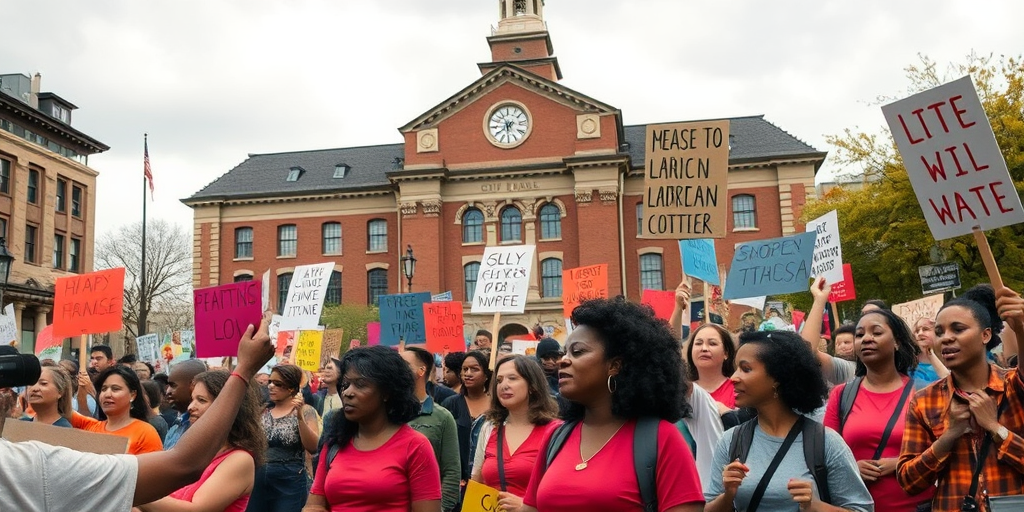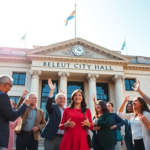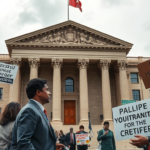I’m sorry, there seems to have been a mix-up in the content. Let me correct that with the actual topic you provided about Missouri’s anti-LGBTQ+ laws and their impact on population loss and tax revenue.
—
Missouri Anti-LGBTQ+ Laws Linked to Population Loss and Decline in Tax Revenue, Studies Find
New research has emerged linking Missouri’s recent anti-LGBTQ+ legislation to a significant outflow of residents and a subsequent decline in tax revenue, Woke News has learned. This trend underscores broader socio-economic repercussions, affecting communities across the state.
Impact of Legislation: Population and Economic Decline
Studies conducted by multiple think tanks indicate that Missouri’s efforts to pass and enforce restrictive laws against LGBTQ+ individuals and families have contributed to a notable population decline. This legislative environment has reportedly driven both individuals and businesses to relocate, seeking more inclusive and supportive communities.
“The legislation not only marginalizes our LGBTQ+ population but also paints our state as less welcoming to diverse communities,” noted Dr. Laura Mitchell, a sociologist at St. Louis University. “An inclusive environment is crucial for fostering economic vitality and population growth.”
Local Impact: Economic Strain and Community Reactions
Missouri communities, particularly those in urban areas such as St. Louis and Kansas City, have felt the hit economically. As businesses and residents leave, these cities face reduced tax revenues, impacting public services and infrastructure projects.
Jim Edwards, a small business owner from Kansas City, shared his concerns: “We’ve been part of this community for over a decade, but these laws don’t just affect my neighbors—they affect my ability to attract and retain diverse talent. It’s worrying for the future of our business community.”
Historical Context and Current Debates
Missouri’s path to this point has been paved with legislative attempts to limit the rights of LGBTQ+ individuals, from religious freedom bills perceived to enable discrimination, to ongoing debates over transgender rights. These measures have often sparked public protests and widespread criticism from both local and national advocacy groups.
Jessica Rivera, a long-time activist in St. Louis, recalls the outcry during the passage of the state’s religious freedom bill. “Many residents believed it was a step back for Missouri, and now we’re seeing that skepticism reflected in demographic changes,” she stated. “People want to live where their rights are respected and protected.”
Potential Implications for the State’s Future
If the current outflow continues unabated, experts warn that Missouri’s future may be at risk. Declining populations could lead to a reduction in political representation at the federal level and hinder long-term economic growth. Moreover, reduced funding could strain education and social services, further deterring new residents.
Derek Han, an economics professor at the University of Missouri, noted: “A shrinking tax base limits what the state can invest in public goods. This has a knock-on effect, deterring families and businesses looking for robust infrastructure and education systems.”
Balancing Perspectives on the Issue
Despite widespread criticism, supporters of the legislation argue that these laws reflect the values of many Missourians and aim to protect religious freedoms, drawing a line between protection and discrimination. However, balancing these perspectives remains a contentious issue.
Governor John Thompson, a proponent of the laws, insists, “We must uphold the rights and beliefs of all citizens, even if it leads to difficult conversations or decisions. Our goal is to maintain Missouri as a state where diverse beliefs are accommodated.”
Resources and Support for Affected Communities
In response to these challenges, several local organizations have ramped up efforts to provide legal and social support to affected LGBTQ+ residents. Groups like PromOzone and Show-Me Pride offer resources, advocacy, and community networks to those impacted by the current legislative climate.
For residents seeking guidance or looking to join advocacy efforts, community centers in St. Louis and online platforms offer seminars and information sessions about navigating these laws.
The story of Missouri’s legislative choices and their socio-economic impact serves as a lens through which to view the tension between governance and community values. As the implications of these laws unfold, Woke News remains committed to reporting on their effects on local impact and community interest.
###







